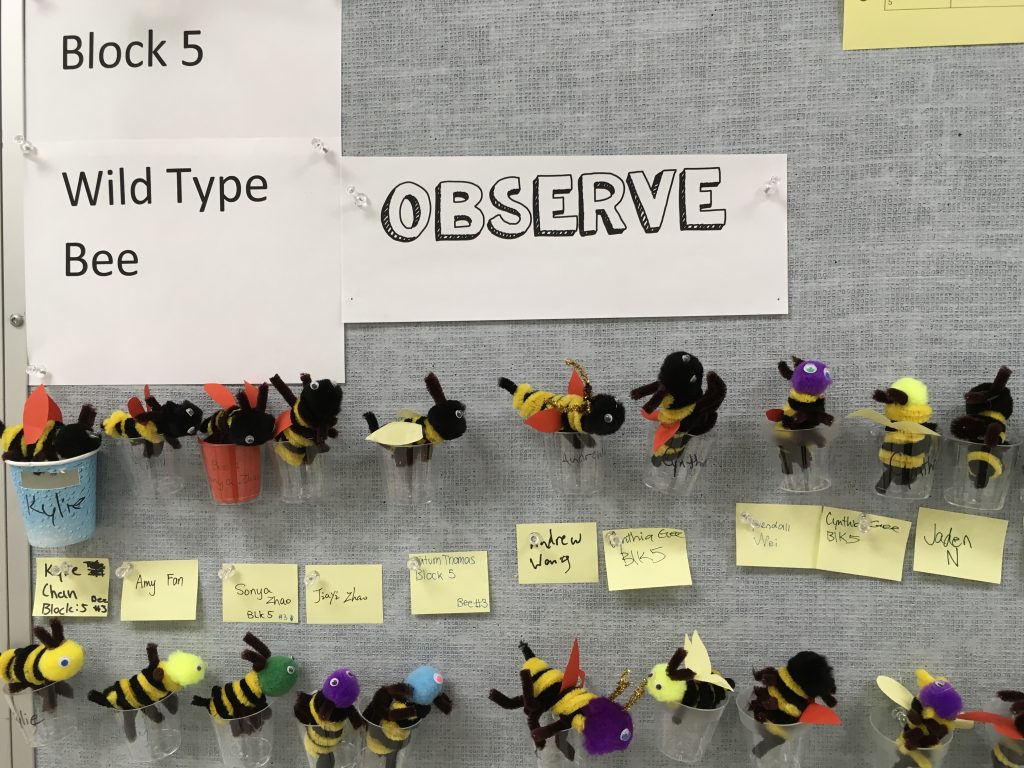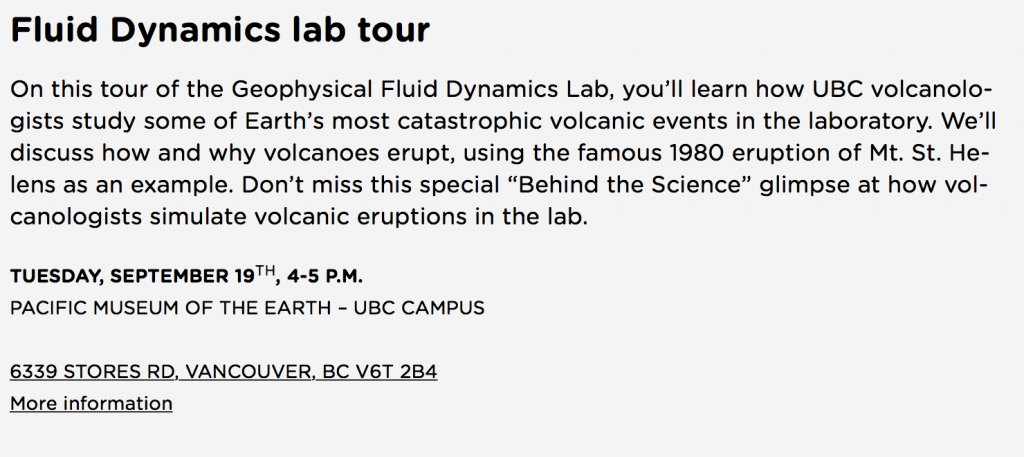Science starts with seeing. Check out some of the amazing wild type and mutated bee forms

What visible features are present in the wild type bees that are not observable in the mutated bees?
Science starts with seeing. Check out some of the amazing wild type and mutated bee forms

What visible features are present in the wild type bees that are not observable in the mutated bees?
Comments Off on Bee Time “Lost in Translation”
Posted in Uncategorized
Comments Off on Bee Spotter – Honey Bee Genome
Posted in Uncategorized
Learn more about how skin colour is a function of melanin presence which varies according to UV radiation.
Comments Off on How can a single allele that has independent assortment produce a colour change in human skin?
Posted in Uncategorized
Learn a lot more about genes, chromosomes and mutations by exploring the learning links on our genetics page:
Learn more about how grassland creatures are about to co-exist due to niche partitioning. Each species is able to co-exist if it occupies a unique biological niche.
Comments Off on Niche – the fun way to learn about natural selection
Posted in Uncategorized


Comments Off on Science Literacy Week A week-long celebration of science in Canada September 18-24, 2017
Posted in Uncategorized
Lets investigate some terms:
DNA Sequencing = your entire genome
Genotyping = a tiny fraction of your genome (0.02% of your genome)
Comments Off on Learn more about how DNA is read using Genome Kits – Genotyping
Posted in Uncategorized
New study highlights the extent of plastic contamination in tap water world wide – learn more
Plankton arrow worm, Sagitta setosa, as seen with a blue plastic fibre in it’s gut. The fibre is approximately 3 mm long. Plankton is at the base of the food chain. This plastic fibre is transferred along the food chain.
Current standard water treatment systems do not filter out all of the microplastics, Mahon said: “There is nowhere really where you can say these are being trapped 100%. In terms of fibres, the diameter is 10 microns across and it would be very unusual to find that level of filtration in our drinking water systems.”
Comments Off on Tap Water is contaminated by plastic
Posted in Uncategorized
A massive black hole has been discovered in our Milky Way Galaxy – Learn more
Comments Off on Welcome Back to School!
Posted in Uncategorized
Watch the solar eclipse (safely) using the life stream from the Exoloratorium. The live stream will start on Monday August 21, 2017 at 9:00 am PST.
On August 21, 2017, beginning at 10:15 a.m. PDT, a total solar eclipse will sweep across the United States. The glorious sight of the fully eclipsed Sun will be visible along a 70-mile-wide path arching from Oregon to South Carolina.
People not in the path will experience a partial eclipse.
Safety: It is never safe to look directly at the sun. Please use the following information to make sure that you do not harm your eyes by staring directly at the sun.
Looking directly at the sun is unsafe except during the brief total phase of a solar eclipse (“totality”), when the moon entirely blocks the sun’s bright face, which will happen only within the narrow path of totality (https://go.nasa.gov/2pC0lhe (link is external)).
Eclipse glass
The only safe way to look directly at the uneclipsed or partially eclipsed sun is through special-purpose solar filters, such as “eclipse glasses” (example shown at left) or hand-held solar viewers. Homemade filters or ordinary sunglasses, even very dark ones, are not safe for looking at the sun; they transmit thousands of times too much sunlight.
Comments Off on Watch the Solar Eclipse – Live stream from the exploratorium
Posted in Uncategorized
We are able to eavesdrop on other information while learning; however, this extra stimulation slows learning. (July 5, 2017)
Abstract:
“Subjective experience suggests that we are able to direct our auditory attention independent of our visual gaze, e.g when shadowing a nearby conversation at a cocktail party. But what are the consequences at the behavioural and neural level? While numerous studies have investigated both auditory attention and visual gaze independently, little is known about their interaction during selective listening. In the present EEG study, we manipulated visual gaze independently of auditory attention while participants detected targets presented from one of three loudspeakers. We observed increased response times when gaze was directed away from the locus of auditory attention. Further, we found an increase in occipital alpha-band power contralateral to the direction of gaze, indicative of a suppression of distracting input. Finally, this condition also led to stronger central theta-band power, which correlated with the observed effect in response times, indicative of differences in top-down processing. Our data suggest that a misalignment between gaze and auditory attention both reduce behavioural performance and modulate underlying neural processes. The involvement of central theta-band and occipital alpha-band effects are in line with compensatory neural mechanisms such as increased cognitive control and the suppression of task irrelevant inputs.”
Comments Off on Learning how to learn: what role does visual distraction play in learning
Posted in Uncategorized